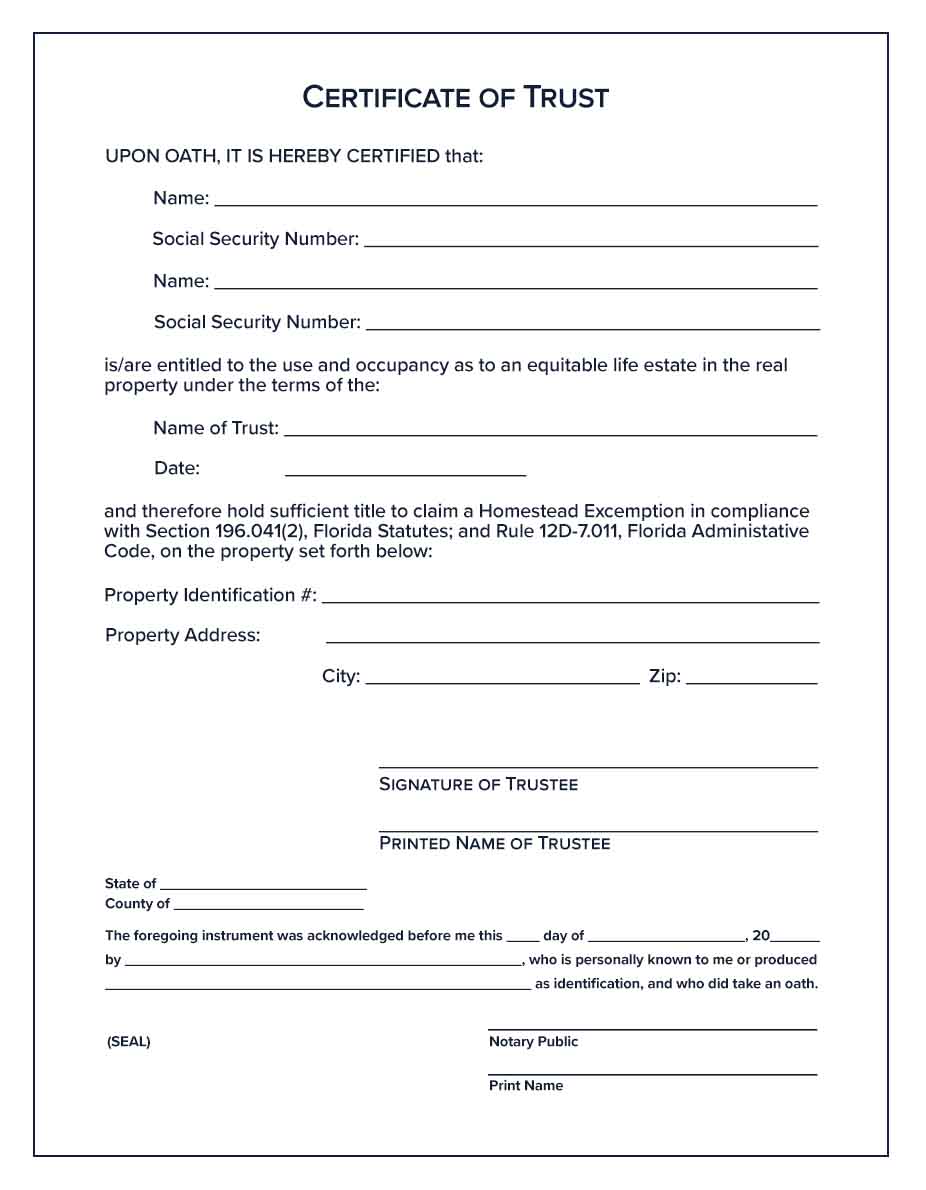If you're asked to use certificate wording that combines different types of notarial acts, follow these tips. These tips will help you avoid common pitfalls and ensure that your certificate is accurate and legally binding. ✔The Notary Answer Book
Example: Certificate Of Trust
Finally, a third example of a hybrid certificate is notarizing a Certificate of Trust, containing both acknowledgment wording and evidence of the signer taking an oath. (See illustration.)
If you are confronted with a hybrid notarial certificate
Key points about hybrid certificates for notaries:
Recognize the hybrid certificate: When presented with a certificate containing language for multiple notarial acts, understand that it's a hybrid certificate.
Perform all required actions:
- Follow the instructions on the hybrid certificate, which may include both an acknowledgment and a jurat depending on the wording.
Check state regulations:
- Not all states permit hybrid certificates, so always verify your state's specific notary laws before using or relying on one.
Record properly in your journal:
- When completing a hybrid notarization, accurately record the details of the actions taken on the certificate in your notary journal.
Charge the appropriate fee:
- Ensure you charge the correct fee based on the type of notarization performed on the hybrid certificate.
Example of hybrid wording: "Acknowledged, subscribed and sworn to before me on (date)" - This wording indicates that the notary must perform both an acknowledgment and an oath or affirmation.
However, I can help you with a variety of notary services.
If you have a question about a specific notary law or regulation,
please consult an attorney in your state.
.jpg)


Comments
Post a Comment